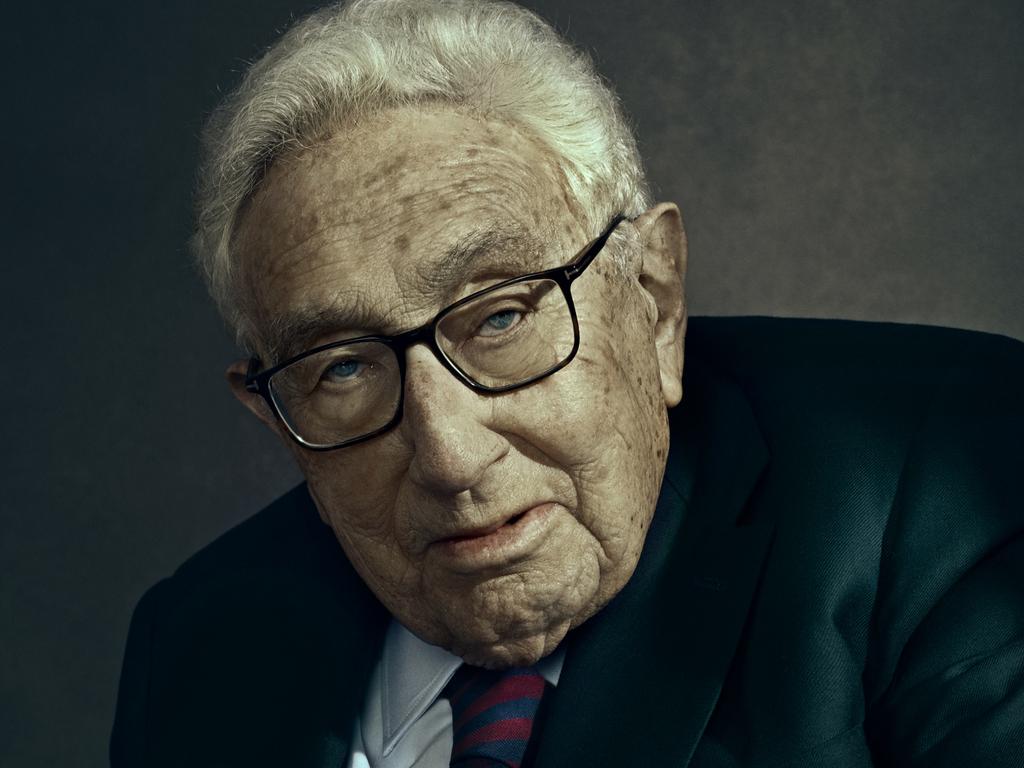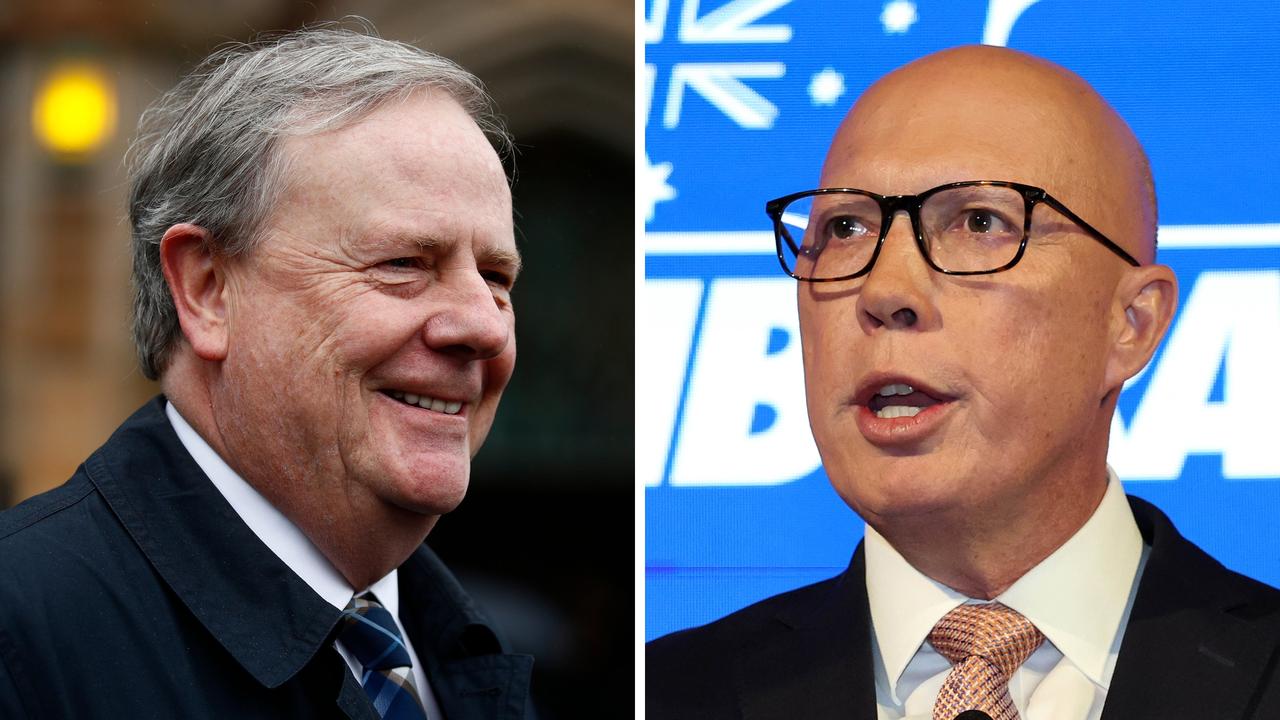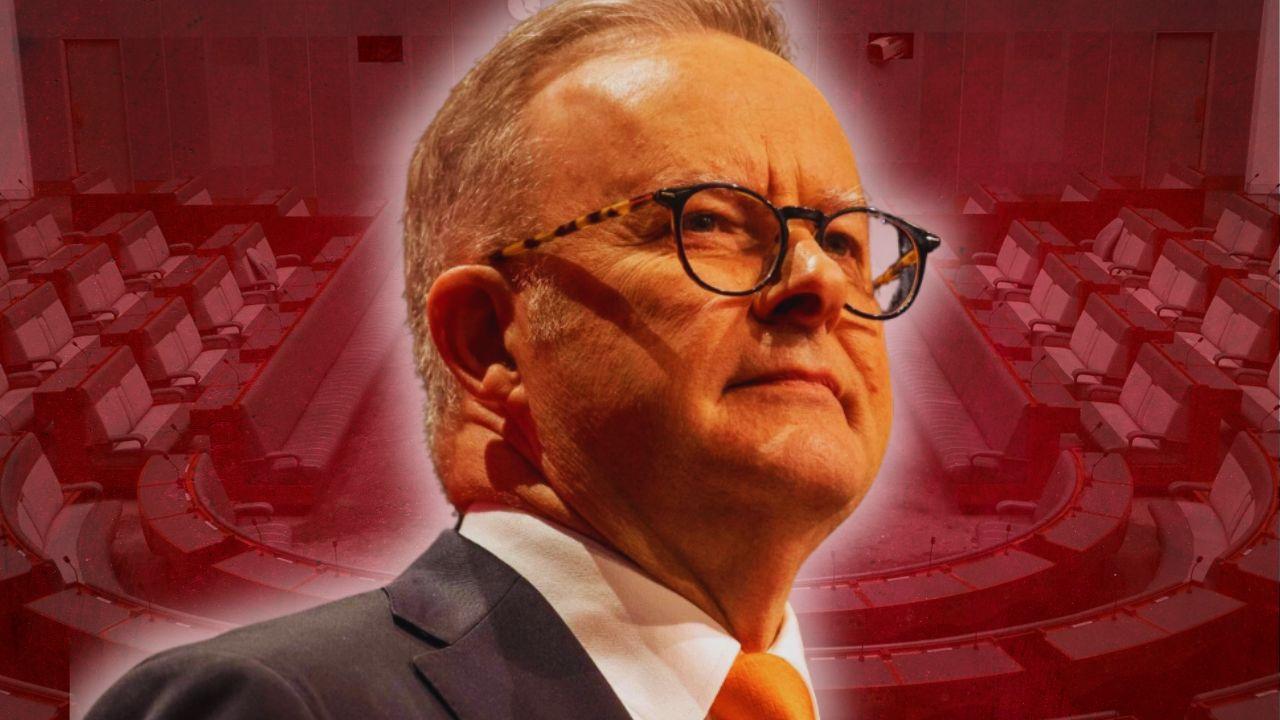Henry Kissinger’s advice: Stick with the US, but talk to China
Henry Kissinger has encouraged Australia to deepen its security relationship with the US while pursuing high-level dialogue with China.
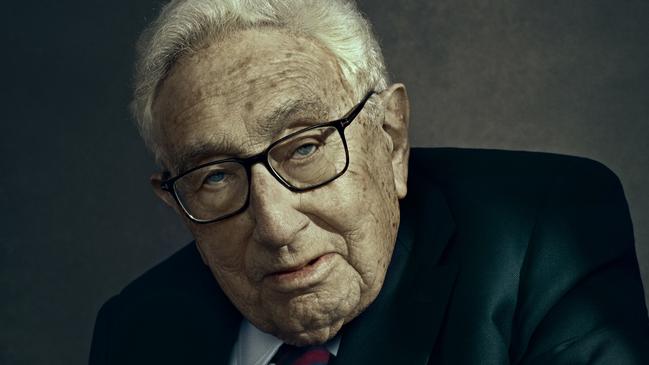
Henry Kissinger has encouraged Australia to deepen its security relationship with the US while pursuing high-level dialogue with China, and warned that inflated rhetoric over the future of Taiwan only heightens the risk of a catastrophic conflict.
In an exclusive interview with The Weekend Australian, the 99-year-old influential former US secretary of state and national security adviser said how the US and allies such as Australia dealt with China would be “a historic task” in the decades ahead.
“I have had a long acquaintance with Australia (and) many friendships,” Dr Kissinger said. “Australia, as an American ally, is entitled to the protection of its security and therefore its close strategic co-operation with the US.
“I’m not worried about a dialogue between Australia and China from the point of view that Australia will damage the security of the US or else of the Western world. I think the dialogue can take place in which the two sides are trusting in their conduct towards each other to prevent accidents and unnecessary confrontation.”
While believing that US-China competition was likely to be economic rather than military in the decades ahead, Dr Kissinger said a “cooling” of rhetoric by the US and China over Taiwan would ease tension, reduce the potential for conflict, and improve relations.
He emphasised that in navigating US-China relations, the US and its allies must maintain their strength so that China’s authority is matched, while also respecting China as a participant in the international order.
“I’m not saying that all conflicts can be avoided,” Dr Kissinger emphasised. “But what must be avoided is an all-out type of war. So, can that sort of military conflict be avoided? I think it has to be. But we are not yet even in the beginning of evolving such a thinking.
“In the nuclear age, we had arms-control negotiations. We have nothing like this going on, and the dilemma for us is that (there are) certain forms of pressure we are bound to oppose – and, thanks to allies or to automatic objectives, that we must oppose. And therefore, we must have a military capacity that makes it plausible to oppose.
“It’s complicated. I don’t know any world situation that had such a complex final issue – namely that one must be strong enough to defend one’s core interests and to make the adversary understand that. But one must also avoid making that the only end of policy because if it is, some catastrophe will arise.”
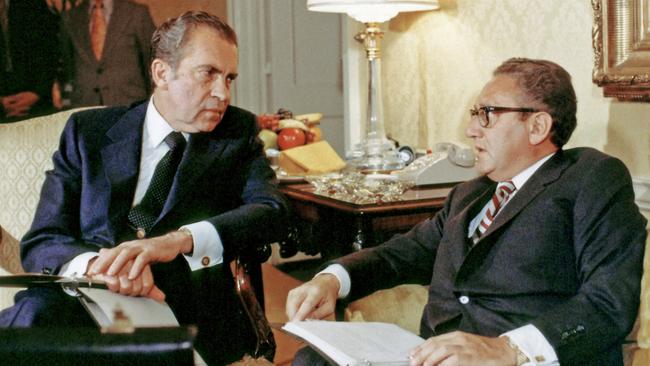
Dr Kissinger served in the administrations of Richard Nixon (1969-74) and Gerald Ford (1974-77). He is the last surviving cabinet secretary from the Nixon era.
He spoke to The Weekend Australian about his new book, Leadership: Six Studies in World Strategy (Allen Lane) which profiles and analyses Konrad Adenauer, Charles de Gaulle, Richard Nixon, Anwar Sadat, Lee Kuan Yew and Margaret Thatcher.
In an address to Davos in May, Dr Kissinger suggested the conflict in Ukraine could cease with Russia returning to the “status quo” before the current war began, with Crimea annexed and Donetsk and Luhansk controlled by Russian separatists. While controversial, Dr Kissinger said this would in fact represent a defeat for Russia. Ukraine would be rearmed and closely connected to NATO.
“The war will end at some point, and the question is: should it be fought to the absolute exhaustion of all participants, or whether at some point there will be a discussion after which Ukraine, Russia and Europe can live together,” he said.
“A constant war along the dividing lines is going to exhaust both sides and therefore lead to ancient pressures becoming more and more prominent. So I expect there to be a diplomatic effort. My instincts say it will happen sometime this year.”
On America, Dr Kissinger said the divisions in the US were much greater than those in the 1960s and 70s. He said Donald Trump’s attempt to overturn the 2020 election was worse than Watergate, and the US needed “moral cohesion” as the global order fractured.
“These (January 6th Committee) hearings that are now taking place are not about an attempt to carry out American politics by inappropriate means but an attempt to undo a constitutional process,” he said.
“Unless some moral cohesion is reconstituted, the country will find it very difficult to get out of it. It was a problem at the end of the Nixon period.
“We were lucky that Gerald Ford, as vice-president and then president, was a man who brought about a greater degree of moral cohesion. Right now, we have not yet found the anchor point of cohesion in America. So it is more problematical now – but, if anything, even more necessary because now the challenge is on an even more global basis than it was then.”


